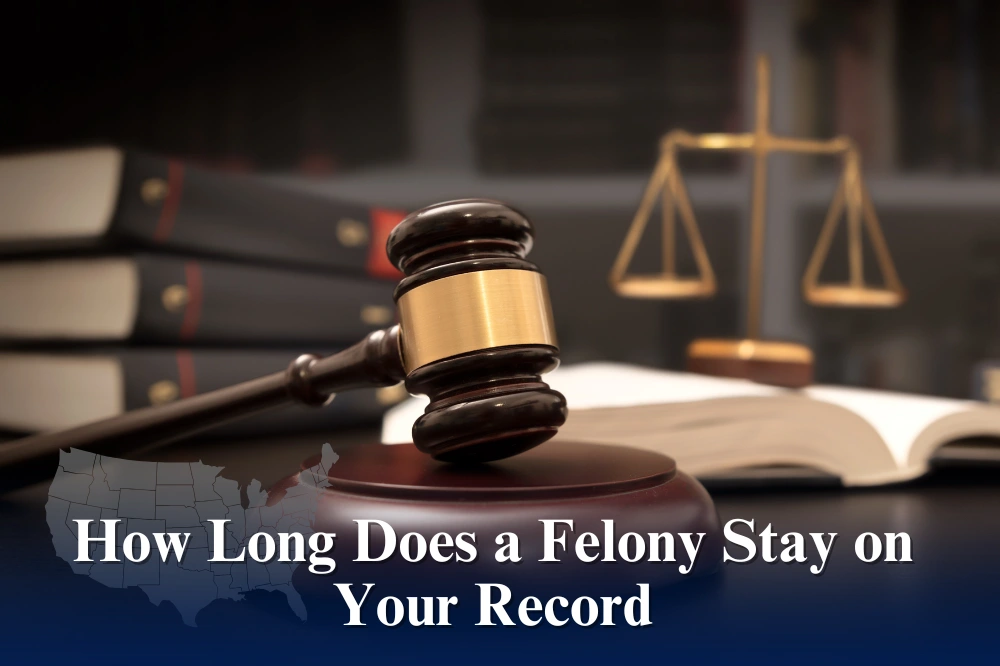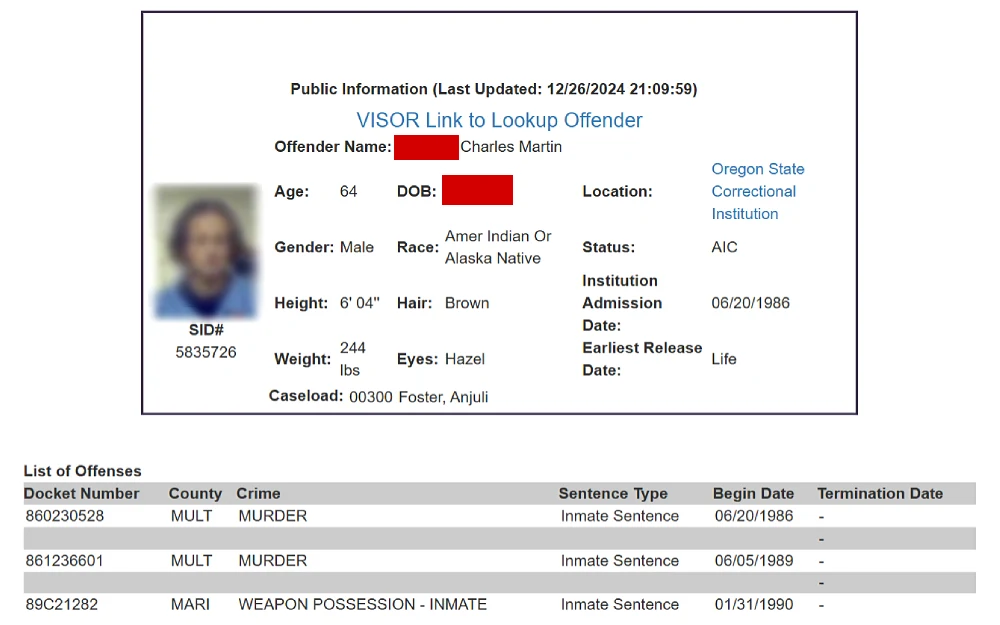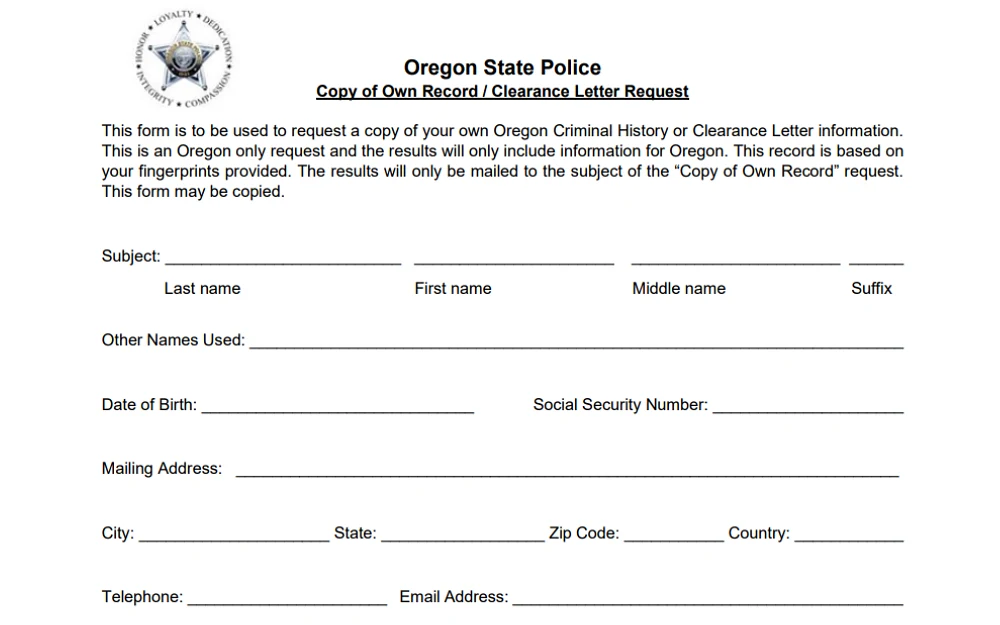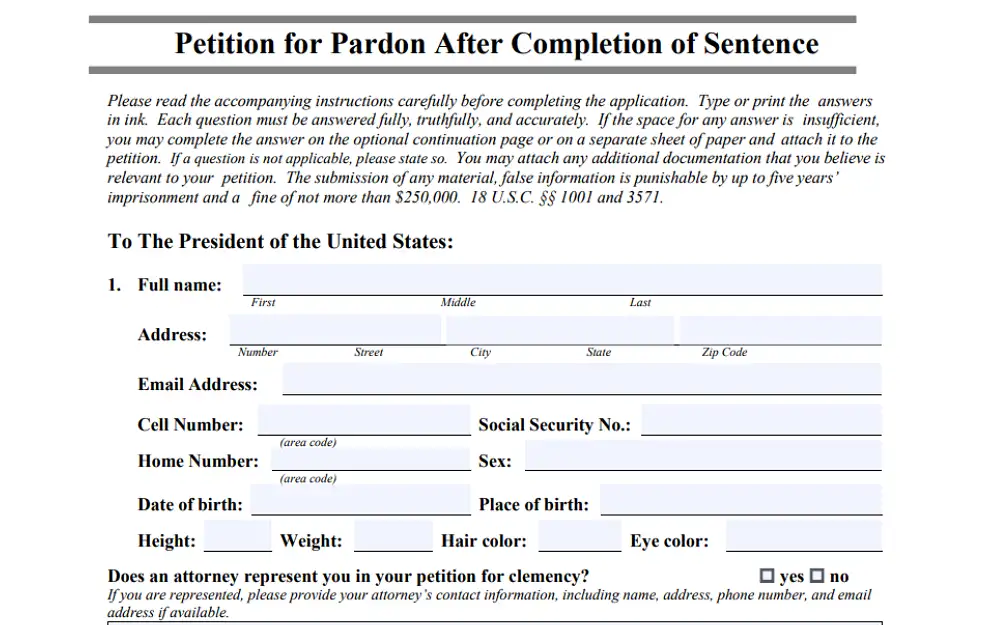
The effects of a criminal conviction can last much longer than most people expect, leading them to ask how long a felony will stay on your record.
Felonies are considered serious crimes that put public safety at risk, while misdemeanors are classified as minor violations with less severe consequences.
A felony record can hold you back for years, causing drastic consequences in the long-term; such a charge makes it harder to move up in your career, stay financially secure, or improve your living situation, as explained below. Some felonies may be eligible for removal or sealing after a certain period — but for some, such charges are permanent.
This article helps you better grasp the timeline for criminal records, what affects their duration and how options like expungement or sealing could create a more hopeful path forward.
Understanding How Long a Felony Record Lasts
The felony record duration really depends on where it happened. In fact, some states never erase criminal records, while others only keep them for a certain period that varies with the seriousness of the offense.
Knowing the laws in your state is essential for anyone who’s wanting to leave their past behind. After all that, a closer look at examining the many reasons that affect how long a felony record can be on file will be covered in the next part.
Factors That Determine Felony Record Duration
The length of time a felony stays on record depends on several aspects, as outlined below.
- Jurisdiction: State laws may allow expungement, whether automated or by request or petition. For example, California, Colorado, Maryland, Massachusetts, and Kansas all grant expungement automatically after a certain amount of time has passed. However, federal felonies are usually permanent unless pardoned.
- Offense Category: Violent crimes tend to be much harder to remove from your record, while theft or possession and other crimes that don’t involve violence may be cleared. Compared to adult crimes, juvenile records can be sealed or deleted faster.
- Criminal Past: Having a prior conviction could lead to stricter penalties. On the other hand, first time offenders might face more lenient consequences.
- Rehabilitation Efforts: Court considerations are probation completion, paid fines and avoiding new charges.
- Court Discretion: Judges have authority to approve or deny expungement.
- Time Since Conviction: A waiting period of typically a few years up to a decade after all sentencing is done.
- Expungement Eligibility: Not all offenses are eligible for expungement, though—violent crimes and offenses of a sexual nature are likely to be excluded. States typically do not allow for removal of a Driving Under the Influence (DUI) charge either.
Although a felony record can remain on file for life, depending on the circumstances, it may eventually be sealed or expunged.
Are Criminal Records Publicly Accessible?
In general, criminal records are public; however, accessibility changes if the record is sealed or expunged. Even then, certain entities—law enforcement, government agencies and specific employers—can still view them.
Thanks to laws like the Freedom of Information Act (FOIA), public access to records is often guaranteed, though misuse of such information carries legal consequences.1
Some states, such as Missouri, make obtaining these records more convenient through public records statutes such as their Sunshine Law, which – in addition to the federal FOIA – mandates government agencies to provide criminal records to anyone who requests them.2 Sealing or expunging juvenile records, for instance, keeps them hidden from the public.
For more details using Missouri as an example, you can refer to the overview of finding criminal records in Missouri.
How To Check & Retrieve Your Criminal History Record
Use official government resources like county or state databases, online portals, or even visit in person to check a felony record.
In Oregon, for instance, you can access criminal records using the State Department of Corrections’ inmate search tool.3 Enter the offender’s first, middle, and last name or their State Identification (SID) number, once accepting the terms and click ‘Search’ to see results.
Clicking the linked SID number will display the inmate’s profile including their name, age, date of birth, race, gender, and physical description—like height, weight, hair, and eye color. It’ll also show their current status, location, mugshot, offense history, aliases, and admission/release dates.

If you want to request public records, you can contact the Oregon Department of Corrections (ODC).4 The Oregon State Police (OSP) also offers forms and an online portal where you can request criminal history information.5

Oregon Department of Corrections
3723 Fairview Industrial Drive SE 200
Salem, OR 97302
Phone: (503)-945-9090 | (503)-570-6919
Fax: (503)-373-1173
Email: [email protected] | [email protected]
Oregon State Police
Criminal Justice Information Services (CJIS) Division
Unit 11 P.O Box 4395
Portland, OR 97208-4395
Phone: 503-378-3070
Email: [email protected]
To learn more, check out the steps for viewing criminal records, which uses Oregon as a sample state for finding such information.
Note: While this example is specific to a particular state, the best route to go is typically to search “[state] criminal record search” or “[state] Department of Corrections” to get started in your hunt for criminal history documentation. From there, you’ll likely find the respective state law enforcement website, search tools, and contact methods for reaching their offices.
Impact of a Felony on Employment, Housing & Other Areas of Life
A felony conviction can have lasting effects on daily life and long-term opportunities, making it harder for individuals to move forward. Different areas of impact include those listed below.
Voting Rights: Depending on the state, voting rights may be temporarily or permanently restricted due to a felony conviction.
Custody Rights: When making custody decisions, courts view criminal convictions as signs of an unstable home.
Employment Restrictions: Although the Fair Chance Act: Ban the Box seeks to postpone the release of criminal records, background checks continue to impact convicted individuals’ employment prospects.7
Housing Challenges: Since landlords usually won’t rent to people with criminal records, they have limited housing options, which can result in poor housing conditions or even homelessness.
Background Checks: As stated, because employers, landlords, and lenders often view people with criminal histories as possible threats, they can affect their chances for employment, housing, loans, and licenses.
Passport Eligibility: A crime does not usually preclude obtaining a passport, however certain convictions, parole, probation, or travel prohibitions can impose restrictions.
Travel Restrictions: Canada and the European Union (EU) frequently deny entry, requiring more documents or legal processes; criminals may face restrictions to travel overseas.8
Social Stigma & Personal Relationships: A criminal conviction’s societal stigma can result in interpersonal problems that take time and assistance to resolve.
Support, rehabilitation, and legal help are necessary to get past a felony record. Employment and education can improve how others view you and can better your own circumstances, whereas housing and a job contribute to stability. Expunging or sealing the record creates further opportunities.
The next section will discuss how expungement can aid in this process.
Exploring Expungement: Can Felony Records Be Cleared?
Expungement give people with felony records a chance to clear their criminal history—but only under certain conditions, as not all felonies qualify.
Eligibility depends on the crime, time since conviction and completion of sentencing.
Sealing a record hides it, but law enforcement and specific employers can still access it; expungement, on the other hand, completely removes the record. Both require a court petition, but sealing is generally more attainable than a full expungement. Non-violent crimes have shorter waiting periods ranging from 3 to 10 years.
Individuals must complete sentencing, pay fines, and avoid new charges and possibly attend a hearing in order to qualify. The expungement process usually includes:
- Researching Laws: Familiarize yourself with state expungement laws.
- Document Preparation: Obtain court records and evidence of sentence completion.
- File a Petition: Submit a petition, possibly with a fee.
- Attend a Hearing: Some cases require a hearing.
- Court’s Final Judgment: The judge determines if the record will be sealed or erased.
Understanding eligibility, processes and results is important for those people looking for a fresh start since it may be challenging to navigate the process without guidance.
Consider pardons which are granted by a governor or president, restore rights such as voting, firearm ownership, and employment eligibility if you have a felony record.9

If any trial errors are found, you may also file a legal appeal to contest the conviction and maybe have the sentence reduced or overturned.10
Sentencing Agreements & Plea Bargains in Court: A Legal Overview
In criminal cases, plea deals and sentencing agreements are essential.11 In a plea bargain, the defendant pleads guilty to a lesser charge or agrees to a reduced sentence in exchange for cooperation, which can also save time and resources.
On the other hand, sentence agreements guarantee predictability by having the offender accept a predetermined sentence in exchange for a guilty plea.
As both could speed up process and reduce sentencing, defendants must weigh all of their options wisely before selecting one.
State laws and crime severity determine how long a felony stays on your record — but potential expungement may help to able to move forward.
References
1FOIA Government. (n.d.). Freedom of Information Act: Learn. Retrieved December 27, 2024, from <https://www.foia.gov/about.html>
2Missouri Attorney General. (2023). Sunshine Law Handbook. Retrieved December 27, 2024, from <https://ago.mo.gov/wp-content/uploads/SunshineLawHandbook-BAILEY-FINISHED-2023-2.pdf>
3Oregon Department of Corrections. (2024). Offender Search. Retrieved December 27, 2024, from <https://docpub.state.or.us/OOS/searchCriteria.jsf>
4Oregon Department of Corrections. (n.d.). Research and Information Requests. Retrieved December 27, 2024, from <https://www.oregon.gov/doc/research-and-requests/pages/public-records.aspx>
5Oregon Department of Corrections. (n.d.). Criminal Justice Information Services (CJIS). Retrieved December 27, 2024, from <https://www.oregon.gov/osp/programs/cjis/pages/cch.aspx>
6Oregon State Police. (2022, December). Copy of Own Record / Clearance Letter Request Form. Retrieved December 27, 2024, from <https://www.oregon.gov/osp/programs/cjis/Shared%20Documents/Copy%20of%20Own%20Record.pdf>
7Civil Rights Department State of California. (n.d.). Fair Chance Act. Retrieved December 27, 2024, from <https://calcivilrights.ca.gov/fair-chance-act/>
8Central Intelligence Agency Government. (2024, December, 20). European Union – The World Factbook. Retrieved December 27, 2024, from <https://www.cia.gov/the-world-factbook/countries/european-union/#geography>
9United States Department of Justice, Office of the Pardon Attorney. (2016, July). Pardon Information and Instructions. Retrieved December 27, 2024, from <https://www.justice.gov/pardon/file/898541/dl>
10United States Courts. (n.d.). Appeals. Retrieved December 27, 2024, from <https://www.uscourts.gov/about-federal-courts/types-cases/appeals>
11United States Department of Justice. (n.d.). Justice Manual | 626. Plea Agreements and Sentencing Appeal Waivers – Discussion of the Law. Retrieved December 27, 2024, from <https://www.justice.gov/archives/jm/criminal-resource-manual-626-plea-agreements-and-sentencing-appeal-waivers-discussion-law>
